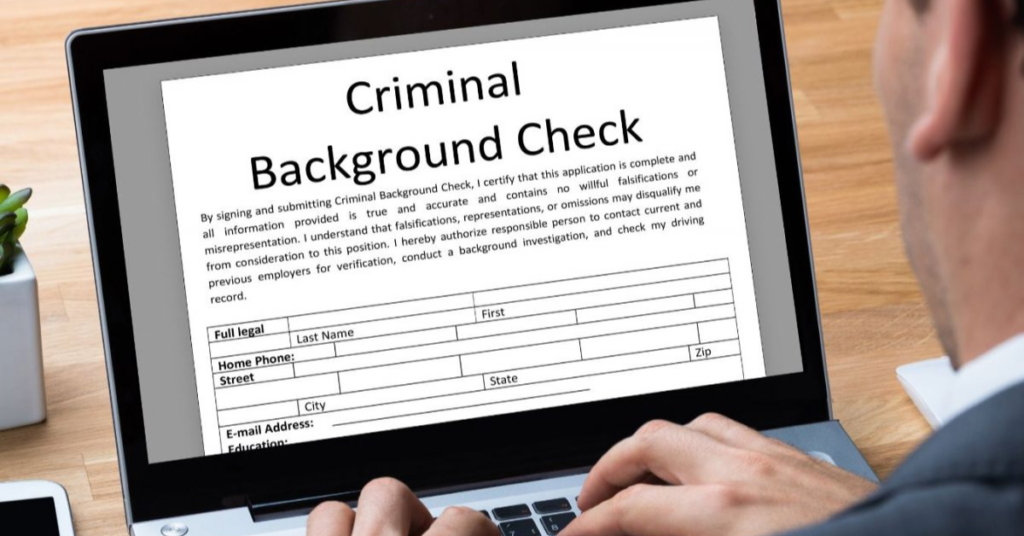In the realm of rental properties, landlords face the crucial task of selecting tenants who will maintain their properties and uphold their lease agreements. With the rise of online rental platforms and the increasing accessibility of tenant screening services, landlords have more options than ever to vet potential tenants.
Tenant Background Search is one such service that offers comprehensive background checks on individuals seeking to rent properties. These checks typically include criminal history, credit reports, eviction records, employment verification, and rental history. On the surface, it appears to be a valuable tool for landlords to make informed decisions about prospective tenants.
General information from a rental background check

A rental background check is a comprehensive process conducted by landlords or property management companies to evaluate the suitability of potential tenants for a rental property. Here’s an overview of the general information typically included in a rental background check:
Credit History: Landlords often request permission to review a prospective tenant’s credit report to assess their financial responsibility. This includes details about the individual’s credit accounts, payment history, outstanding debts, bankruptcies, and any collections or judgments against them.
Criminal History: Landlords may conduct a criminal background check to uncover any past convictions or criminal activity. This information helps landlords assess potential risks and ensure the safety of their property and other tenants.
Eviction History: A rental background check may include a search for eviction records to determine if the applicant has been evicted from previous rental properties. This helps landlords gauge the likelihood of the tenant fulfilling their lease obligations.
Rental History: Landlords often verify a tenant’s rental history by contacting previous landlords or property management companies. This allows them to gain insights into the applicant’s past behavior as a tenant, including payment history, lease violations, and any complaints or issues.
Employment Verification: Some landlords may request proof of income or contact the applicant’s employer to verify their employment status and income level. This helps ensure that the tenant has the financial means to afford the rent and other living expenses.
References: Applicants may be asked to provide personal or professional references who can vouch for their character and reliability as a tenants.
Identity Verification: Landlords typically require applicants to provide identification documents, such as a driver’s license or passport, to confirm their identity and legal status.
Criminal history

When conducting a rental background check, one of the key areas landlords scrutinize is the individual’s criminal history. This segment provides landlords with valuable insights into a potential tenant’s past behavior and any potential risks they may pose to the property and other tenants. A thorough assessment of criminal history typically involves examining several factors.
Firstly, landlords look at any convictions the individual may have. This includes both misdemeanor and felony offenses, detailing the nature of the offense, the date of conviction, and the jurisdiction where it occurred. Understanding the severity and relevance of these offenses is essential, as it helps landlords gauge the potential impact on the rental property and its community.
Another aspect considered is whether the individual is listed on the sex offender registry. This registry provides information about individuals convicted of sex crimes, helping landlords assess potential risks, especially in properties where vulnerable individuals may reside.
Furthermore, landlords may review arrest records, although it’s crucial to remember that an arrest alone does not indicate guilt. It’s convictions that hold more weight in assessing a tenant’s criminal history.
While evaluating a tenant’s criminal history, landlords consider the timeframe of the offenses and any efforts toward rehabilitation. They may also have specific criteria regarding the length of time since the last conviction.
Rental history
Payment History: Evaluate whether the applicant has consistently made timely rent payments.
Lease Compliance: Assess adherence to lease terms, including rules and regulations.
Communication with Landlords: Consider the quality of communication and interactions with previous landlords.
Length of Tenancy: Determine the duration of previous tenancies to gauge stability and commitment.
Reasons for Leaving: Inquire about the reasons for departing previous rental properties.
References from Previous Landlords: Review references from past landlords for firsthand insights into tenant behavior.
Past evictions
| Aspect of Past Evictions | Details |
| Eviction Records | Check for any instances where the applicant was evicted from a rental property. |
| Reasons for Eviction | Understand the reasons behind previous evictions, such as lease violations or non-payment. |
| Frequency of Evictions | Assess whether there is a pattern of evictions in the applicant’s rental history. |
| Resolution of Eviction Cases | Inquire about how past eviction cases were resolved, including payment of outstanding rent or damages. |
| Impact on Rental Eligibility | Consider how past evictions may impact the applicant’s eligibility for rental properties. |
Current Employment
When evaluating a prospective tenant’s rental application, landlords often scrutinize the applicant’s current employment status. This involves gathering essential details such as the name of the applicant’s employer, their specific position or job title within the company, and the duration of their employment.
However, landlords seek to verify the applicant’s income to ensure they have the financial stability to afford rent. This may involve contacting the employer directly to confirm employment status and income level. By obtaining comprehensive information about the applicant’s current employment situation, landlords can make informed decisions about their suitability as tenants and assess their ability to fulfill lease obligations.
Credit score
A crucial aspect of the rental background check process is the evaluation of the applicant’s credit score. This numerical representation of an individual’s creditworthiness provides valuable insights into their financial responsibility and ability to manage debts.
Landlords typically request permission to review the applicant’s credit report, which includes details such as credit accounts, payment history, outstanding debts, bankruptcies, and any collections or judgments against them.
A higher credit score indicates a lower risk for the landlord, as it suggests the applicant is more likely to make timely rent payments and fulfill financial obligations. On the other hand, a lower credit score may raise concerns about the applicant’s ability to afford rent or manage finances responsibly.
What Is A Rental Background Check?
A rental background check is a comprehensive process conducted by landlords or property management companies to assess the suitability of potential tenants for a rental property. It involves gathering various types of information to evaluate the applicant’s rental history, financial stability, and suitability as a tenant. A typical rental background check may include the following components:
Credit Check
This involves reviewing the applicant’s credit report to assess their financial responsibility and ability to manage debts. Landlords look for factors such as payment history, outstanding debts, bankruptcies, and any collections or judgments against them.
Criminal Background Check
Landlords may conduct a criminal background check to uncover any past convictions or criminal activity. This helps landlords assess potential risks and ensure the safety of their property and other tenants.
Eviction History
A search for eviction records helps landlords determine if the applicant has been evicted from previous rental properties. This provides insights into the applicant’s rental behavior and their likelihood of fulfilling lease obligations.
Rental History Verification
Landlords verify the applicant’s rental history by contacting previous landlords or property management companies. This allows them to gain insights into the applicant’s past behavior as a tenant, including payment history, lease compliance, and reasons for leaving previous rental properties.
Employment and Income Verification
Landlords may request proof of income or contact the applicant’s employer to verify their employment status and income level. This helps ensure that the tenant has the financial means to afford rent and other living expenses.
Types of rental background

Credit Check
A credit check involves reviewing the applicant’s credit report, which provides a detailed history of their financial activities. Landlords examine factors such as the applicant’s payment history, outstanding debts, credit utilization, bankruptcies, and any collections or judgments against them. A positive credit history with a high credit score indicates financial responsibility and the ability to manage debts effectively. On the other hand, a negative credit history, such as missed payments or high debt levels, may raise concerns about the applicant’s ability to afford rent or meet financial obligations.
Criminal Background Check
A criminal background check is conducted to uncover any past convictions or criminal activity associated with the applicant. This helps landlords assess potential risks to the safety and well-being of the property and other tenants. The check typically includes information about misdemeanor and felony convictions, arrest records, and listings on sex offender registries. Landlords consider the nature and severity of the offenses when evaluating the applicant’s suitability as a tenant.
Eviction History Check
An eviction history check involves reviewing records to determine if the applicant has been evicted from previous rental properties. Landlords look for patterns of eviction or lease violations, which may indicate a higher risk of non-payment or other rental issues. Understanding the reasons behind past evictions helps landlords assess the applicant’s rental behavior and their likelihood of fulfilling lease obligations.
Rental History Verification
This type of background check entails contacting previous landlords or property management companies to verify the applicant’s rental history. Landlords inquire about the applicant’s payment history, lease compliance, and reasons for leaving previous rental properties. Positive rental references from previous landlords can provide valuable insights into the applicant’s reliability and suitability as a tenant.
Employment and Income Verification
Landlords may request proof of income or contact the applicant’s employer to verify their employment status and income level. This helps ensure that the applicant has a stable source of income to afford rent and other living expenses. Verifying employment and income helps landlords assess the applicant’s financial stability and ability to meet rental obligations.
Reference Check
Applicants may be asked to provide personal or professional references who can vouch for their character, reliability, and suitability as a tenants. Landlords contact these references to gather additional information about the applicant’s rental behavior, communication skills, and overall suitability as a tenant.
Read As: Can a Landlord Withdraw a Notice to Quit? – Rental Awareness
Frequently asked question
Is Tenant Background Search a legitimate tool for evaluating potential tenants?
Yes, Tenant Background Search is a legitimate tool commonly used by landlords to assess the suitability of prospective tenants for rental properties.
What information does Tenant Background Search provide?
Tenant Background Search offers comprehensive background checks, including criminal history, credit reports, eviction records, employment verification, and rental history.
How accurate is Tenant Background Search?
Tenant Background Search strives to provide accurate and reliable information, but it’s essential to verify findings through multiple sources for confirmation.
Is Tenant Background Search Legal?
Yes, Tenant Background Search operates within legal boundaries, adhering to regulations such as the Fair Credit Reporting Act (FCRA) and other applicable laws governing tenant screening.
Can Tenant Background Search be used to discriminate against applicants?
No, Tenant Background Search should not be used to discriminate against applicants based on protected characteristics such as race, gender, religion, or national origin. It should only be used to assess rental qualifications objectively.
How can landlords ensure Tenant Background Search is used ethically?
Landlords should use Tenant Background Search responsibly, focusing on relevant criteria for rental decisions and treating all applicants fairly and equally.
Are there alternatives to a Tenant Background Search?
Yes, there are alternative tenant screening services available, but Tenant Background Search remains a popular choice due to its comprehensive nature and ease of use.
Conclusion
In conclusion, Tenant Background Search emerges as a valuable tool for landlords navigating the complex landscape of tenant screening and rental awareness. Through its comprehensive approach, including assessments of criminal history, creditworthiness, rental behavior, and employment verification, Tenant Background Search offers landlords crucial insights into the suitability of potential tenants for their rental properties.
While it serves as a legitimate resource for making informed rental decisions, landlords must use Tenant Background Search ethically, adhering to legal regulations and avoiding discrimination. Moreover, landlords should complement the findings of Tenant Background Search with other factors and verification methods to ensure fair and accurate rental assessments.

James, with 5 years of business experience, brings expertise to our website. His profile reflects a commitment to excellence and innovation in his field.







